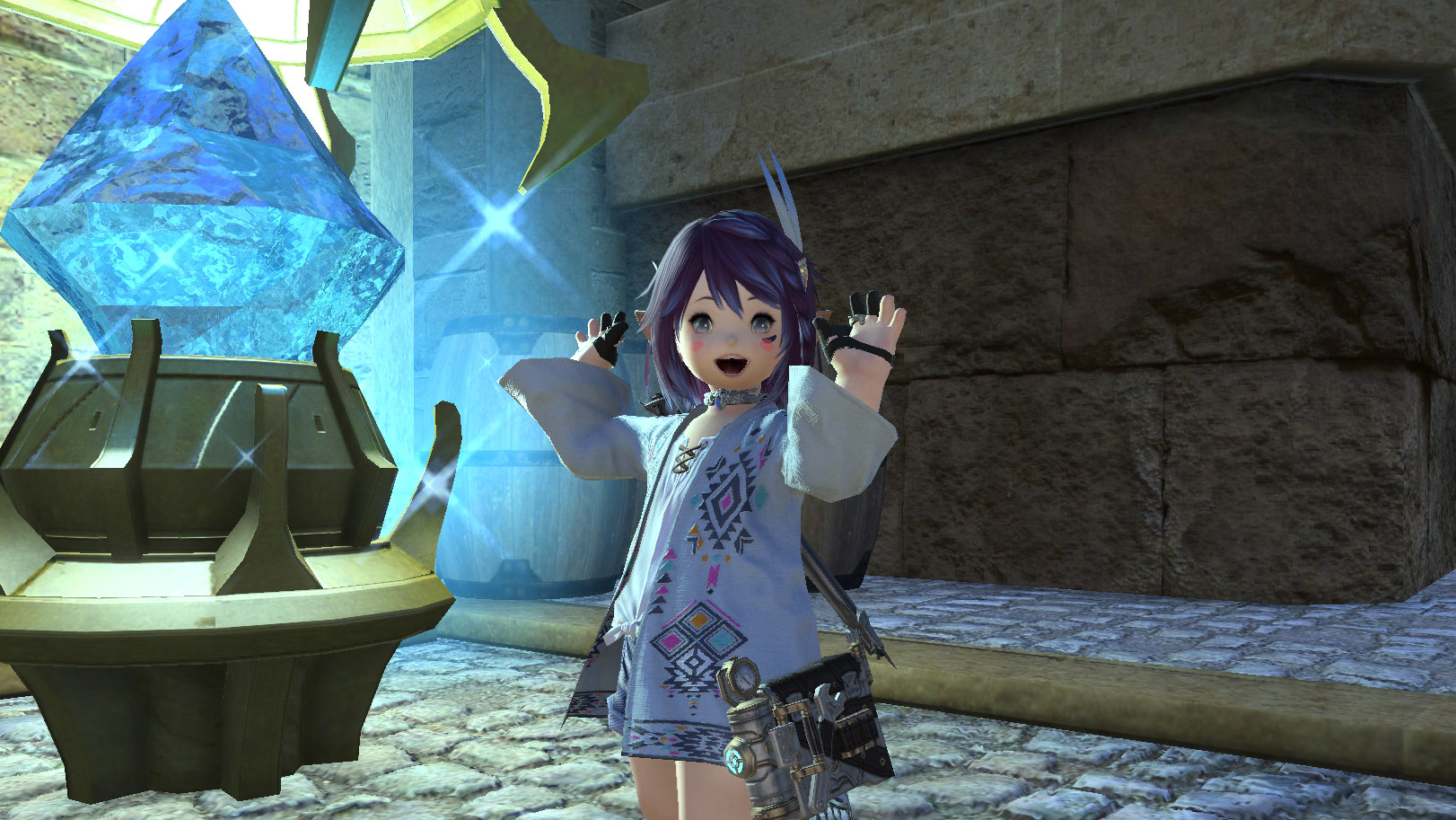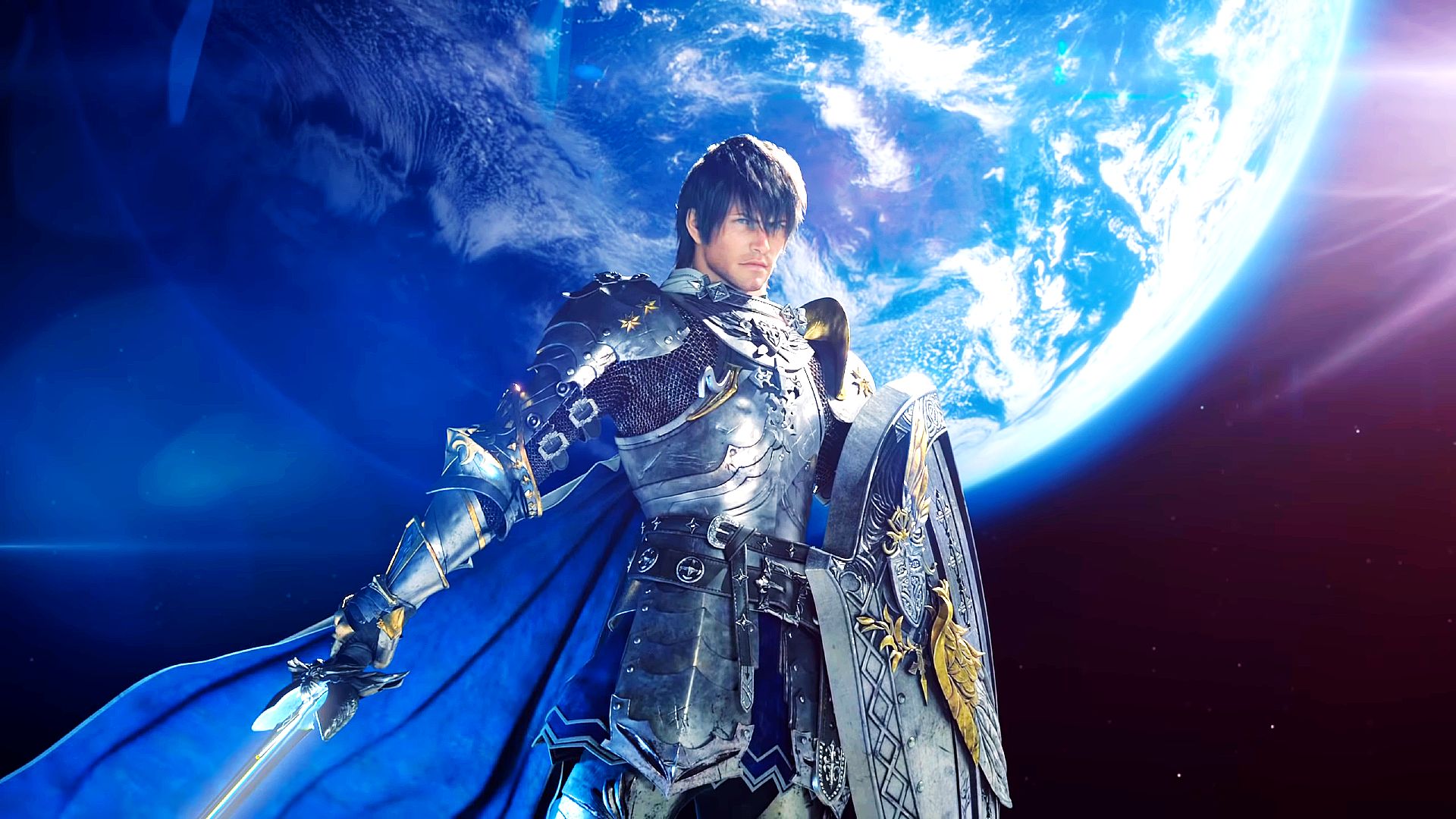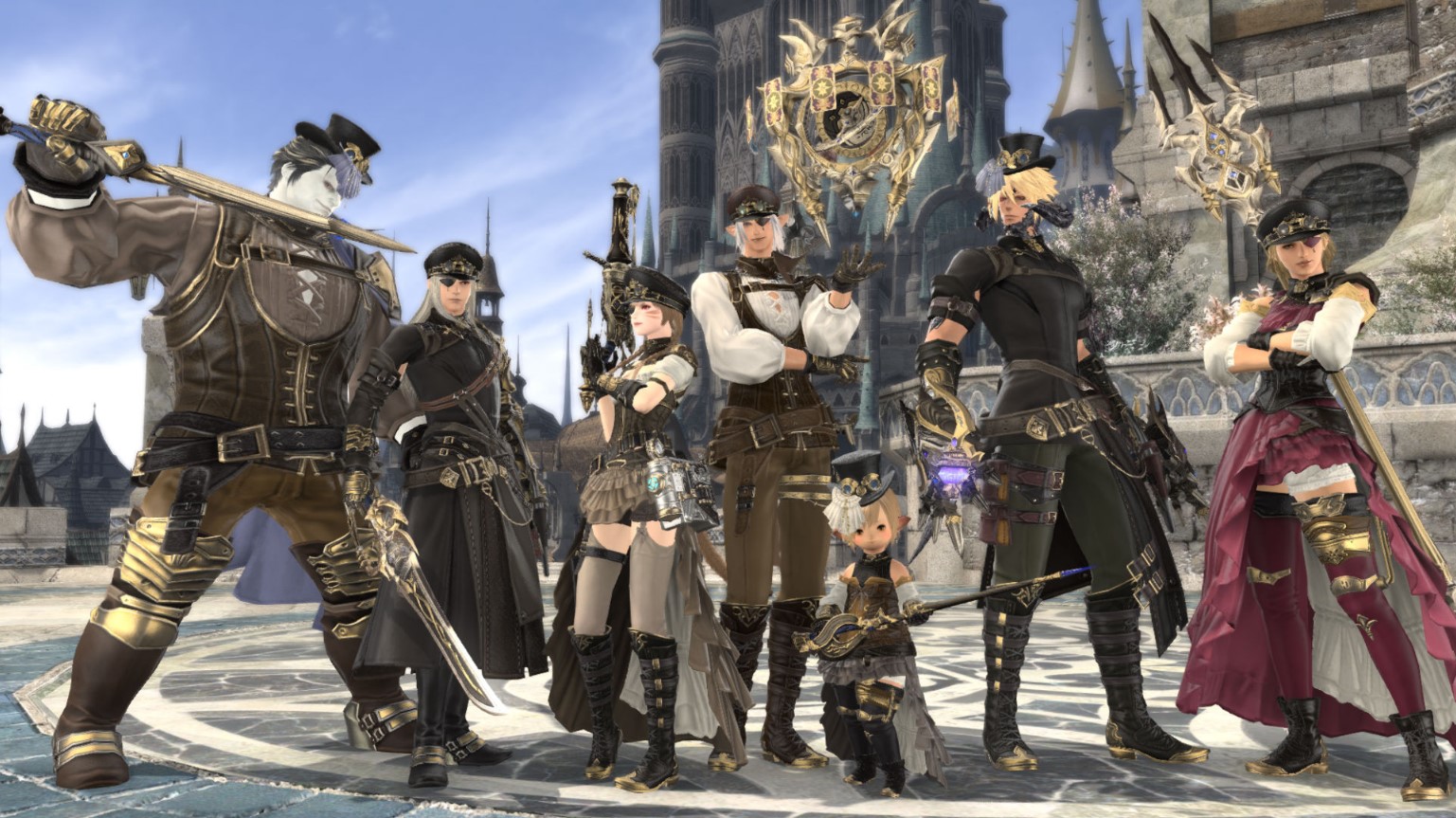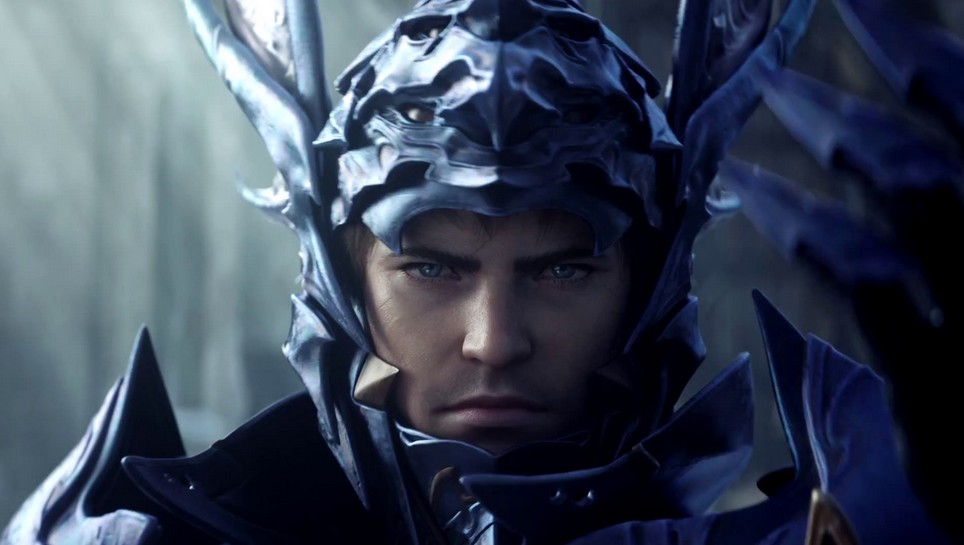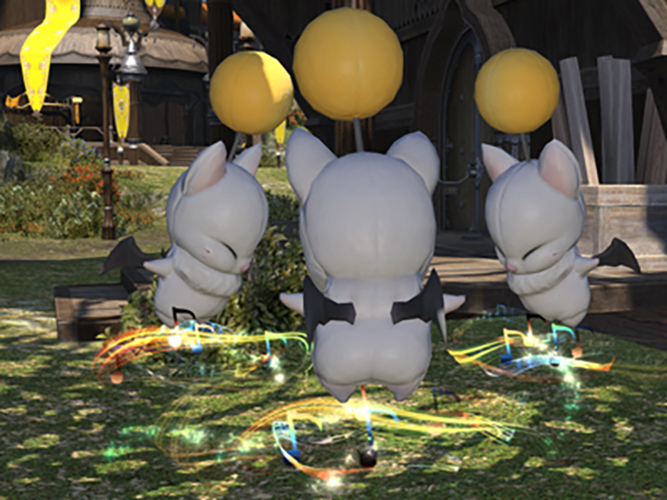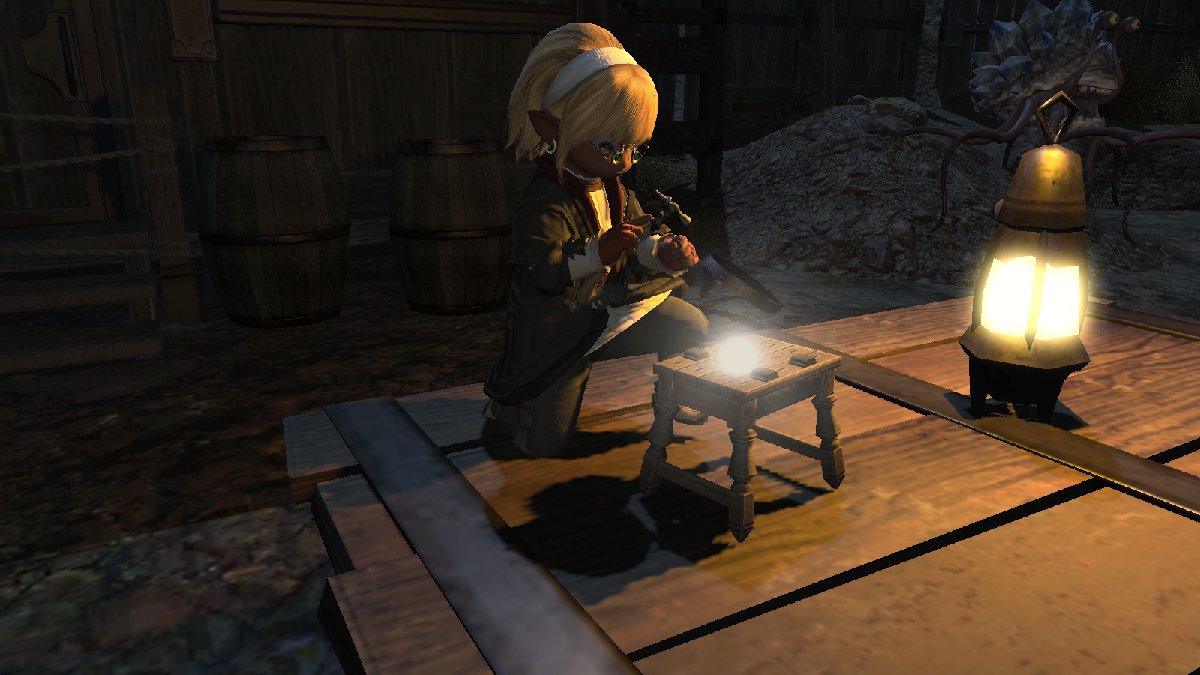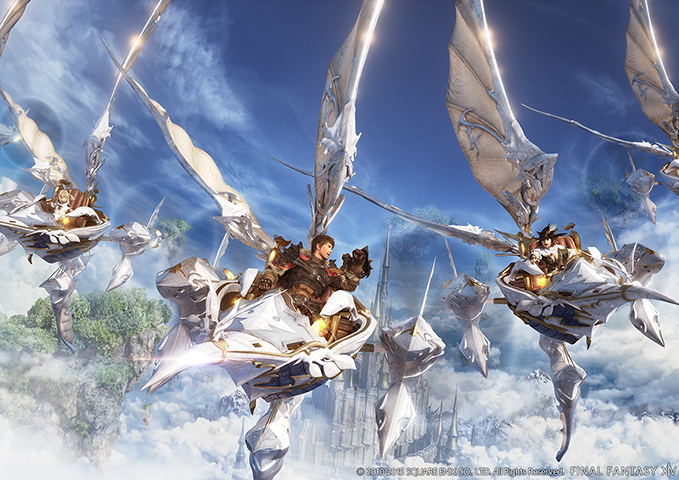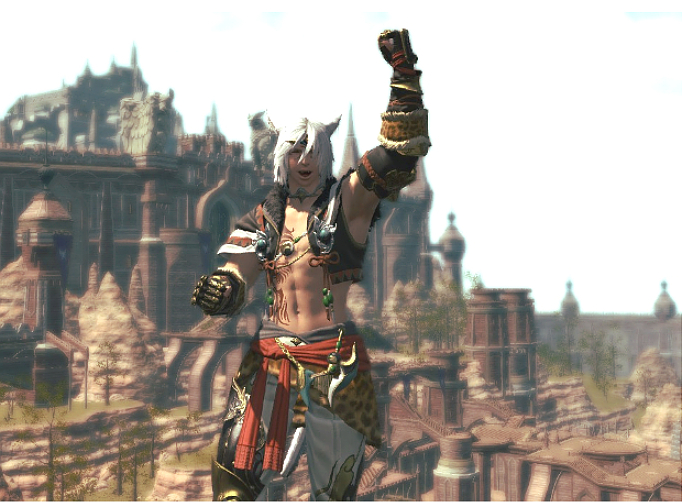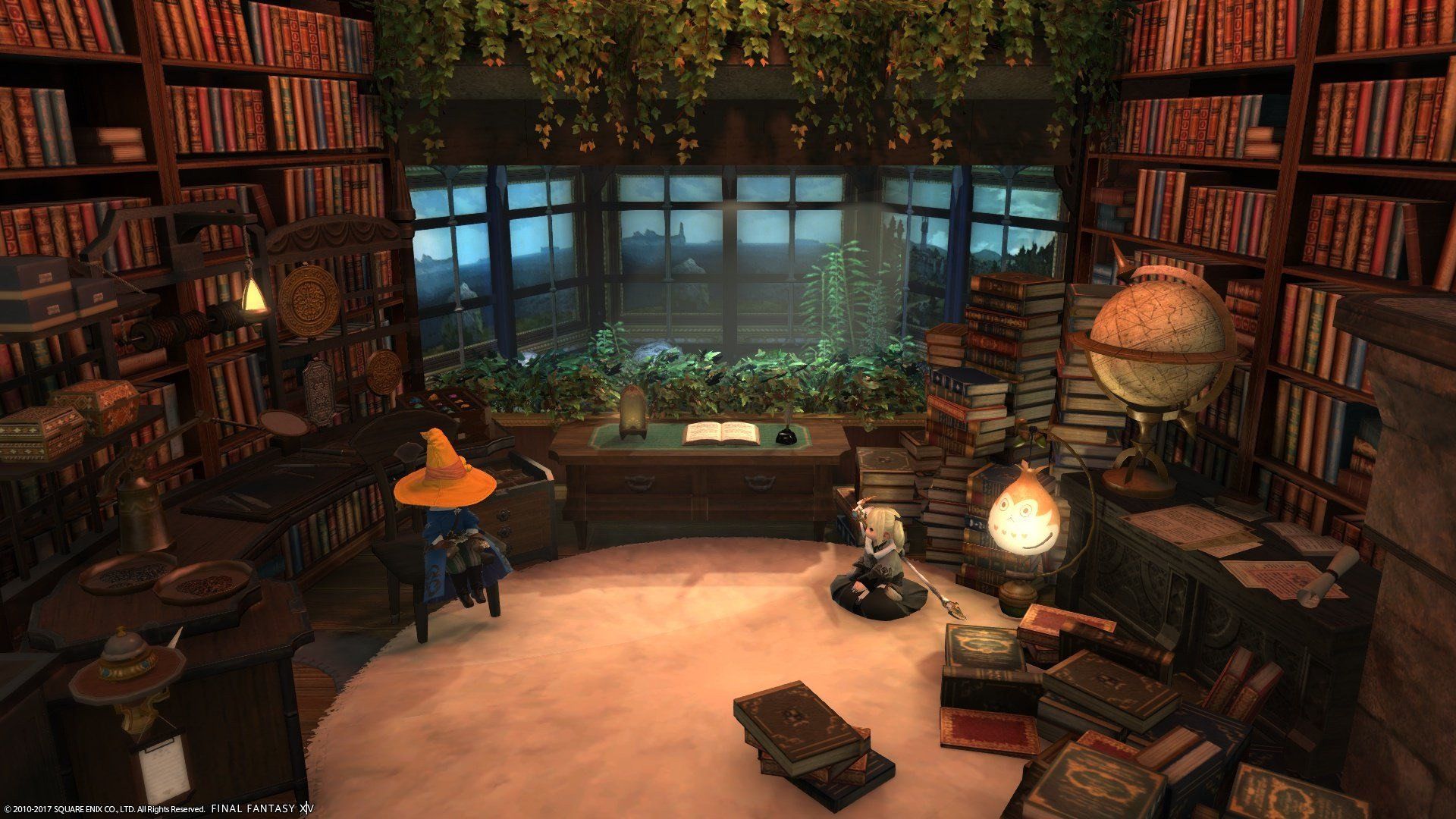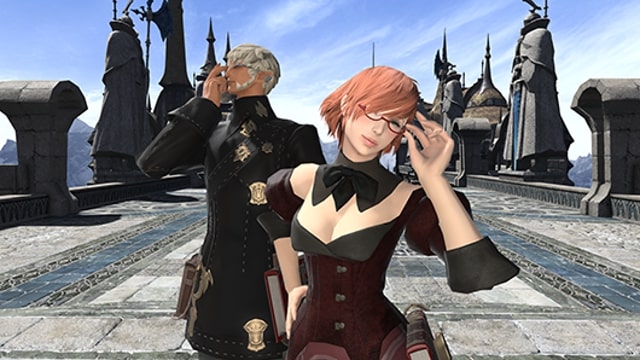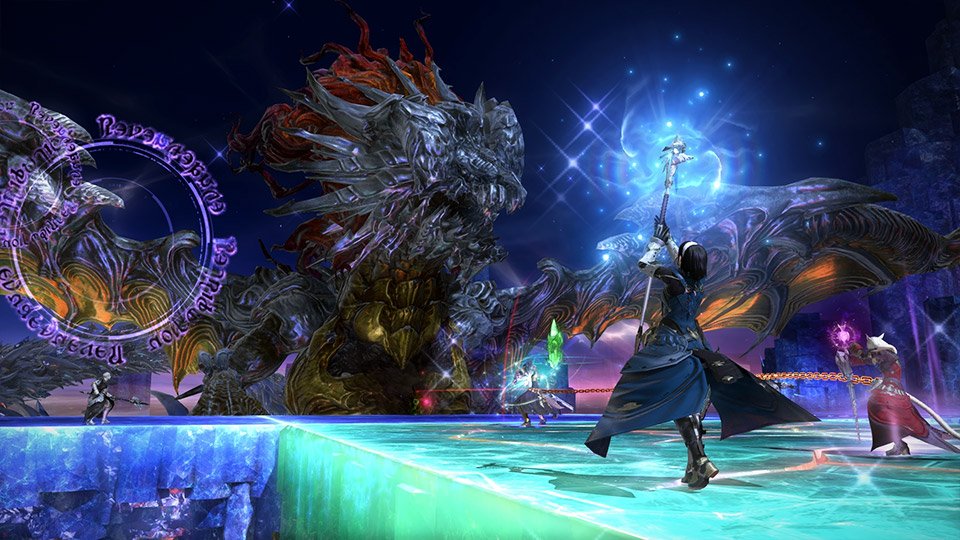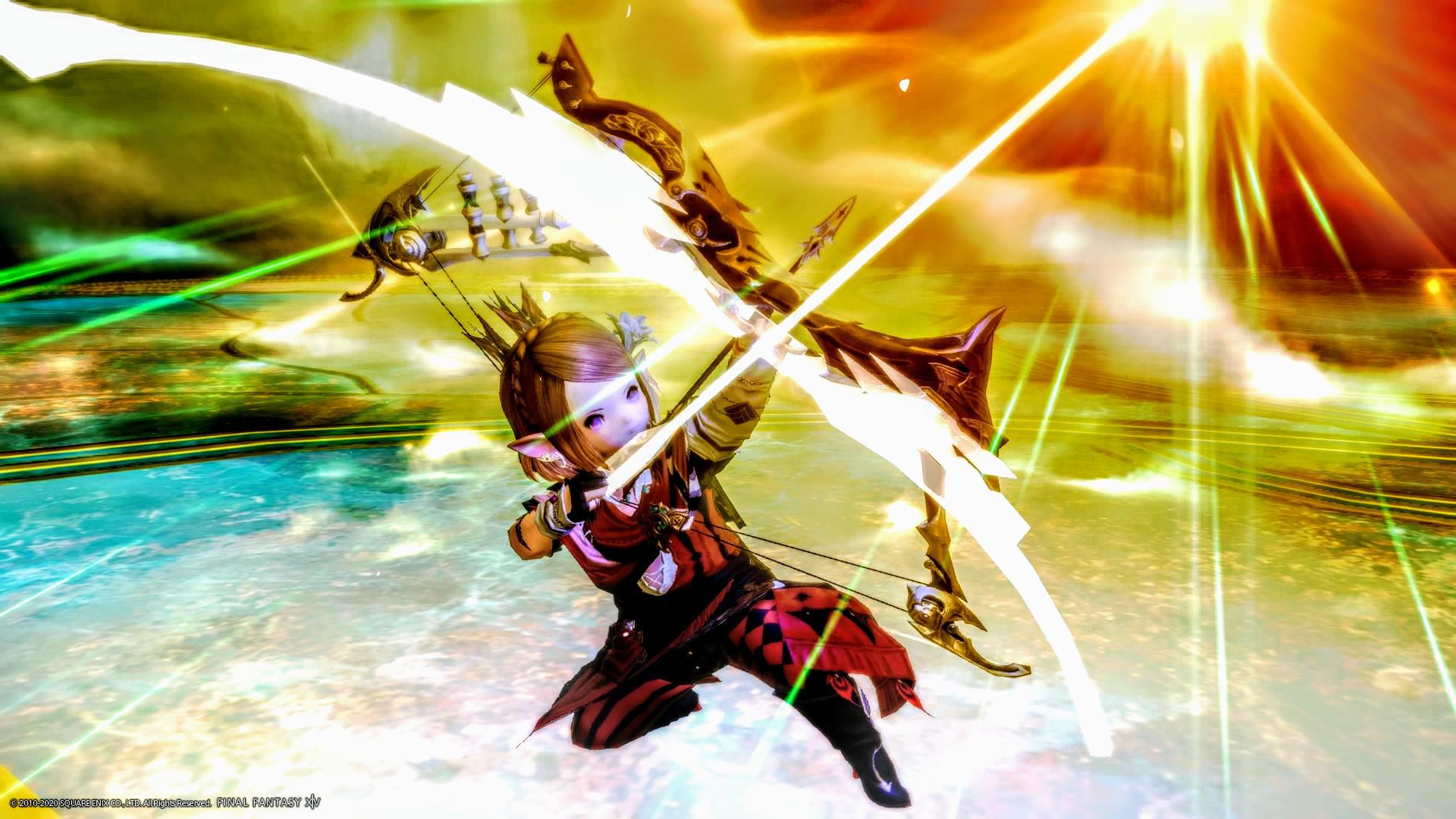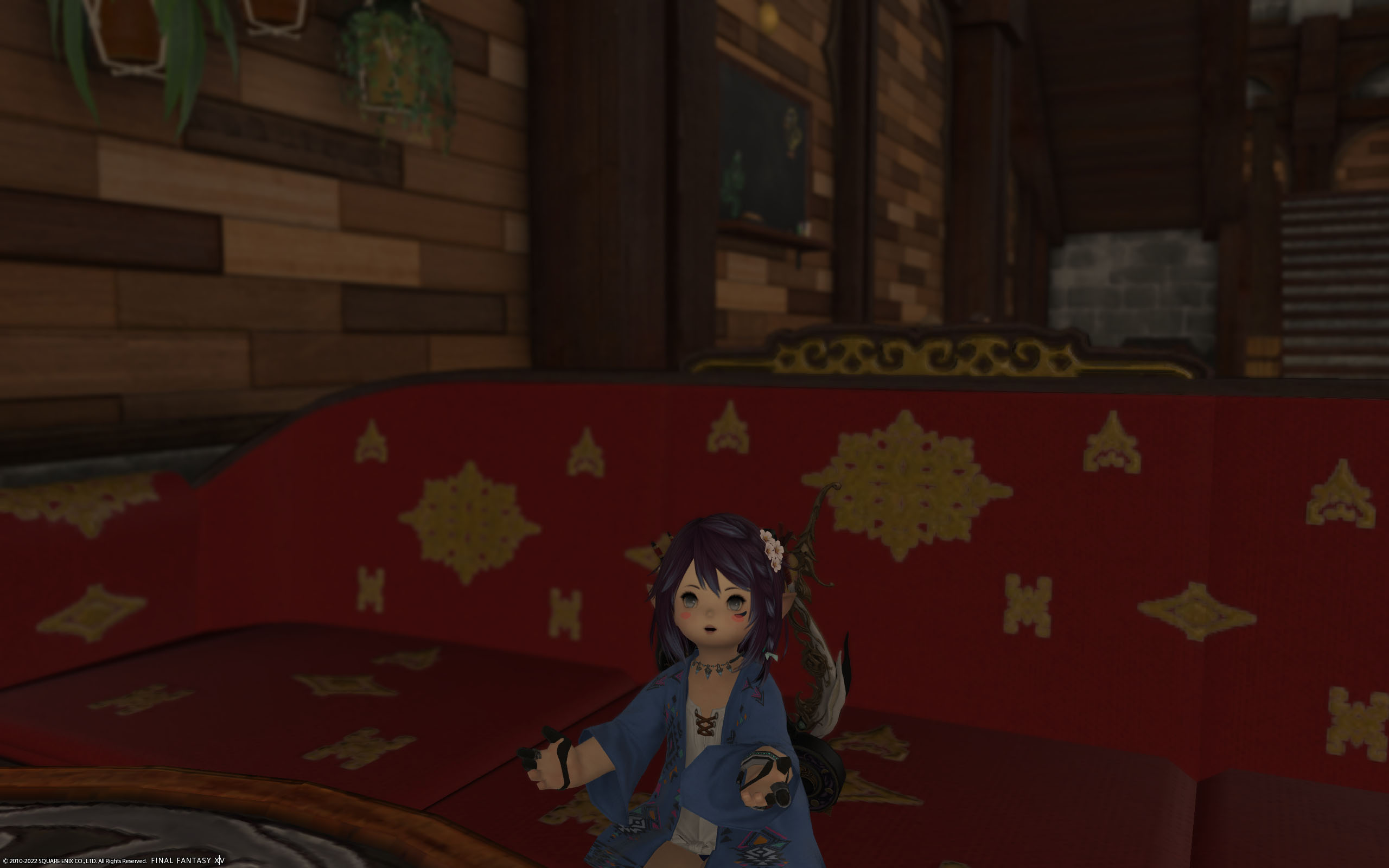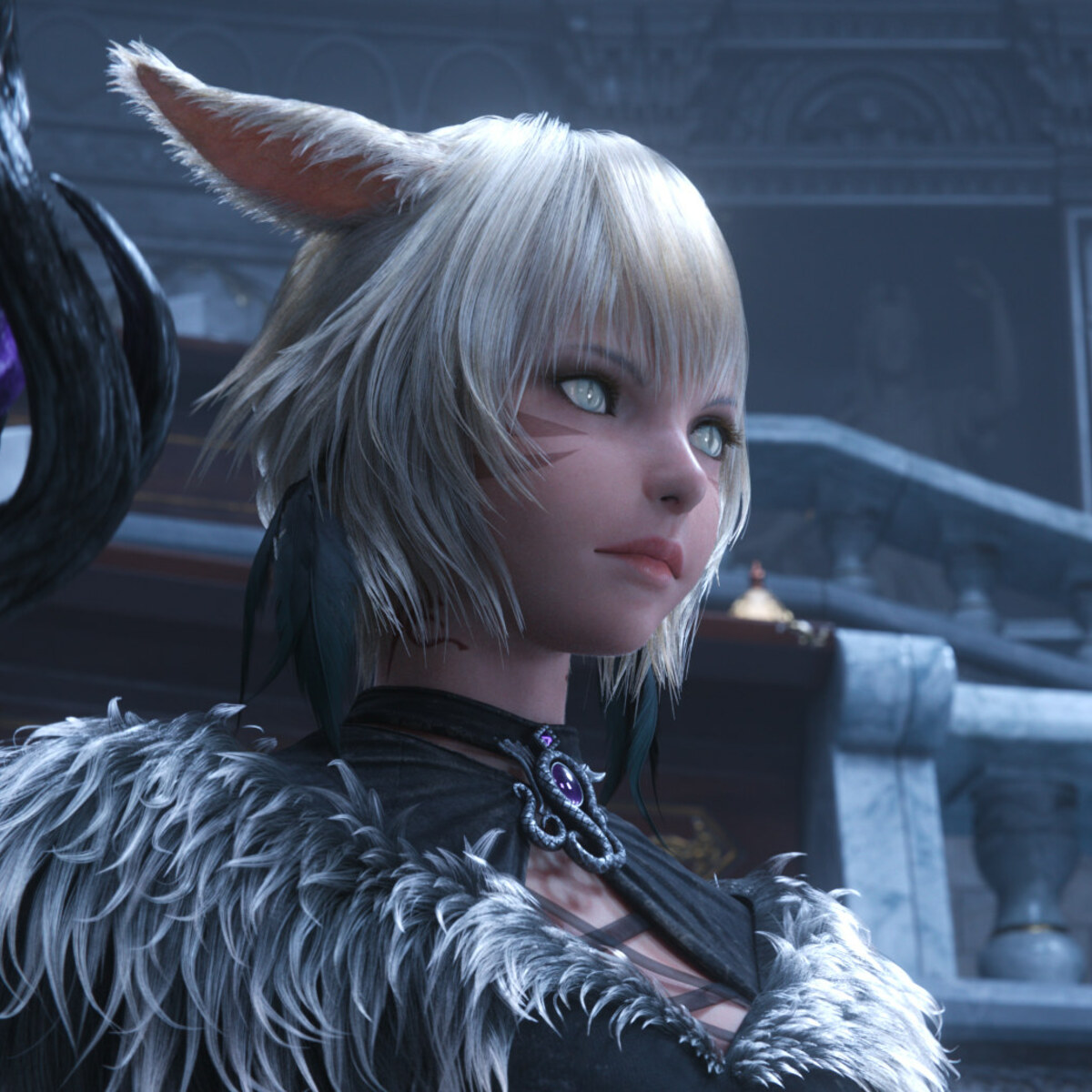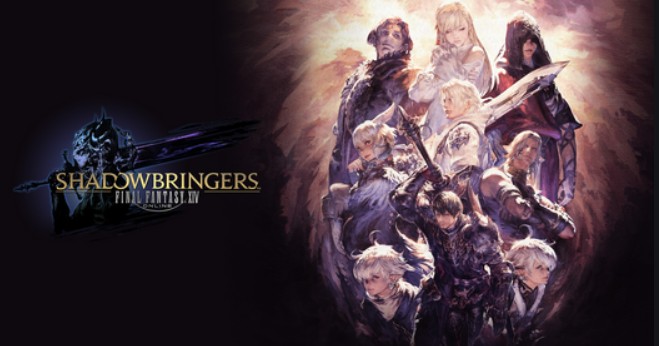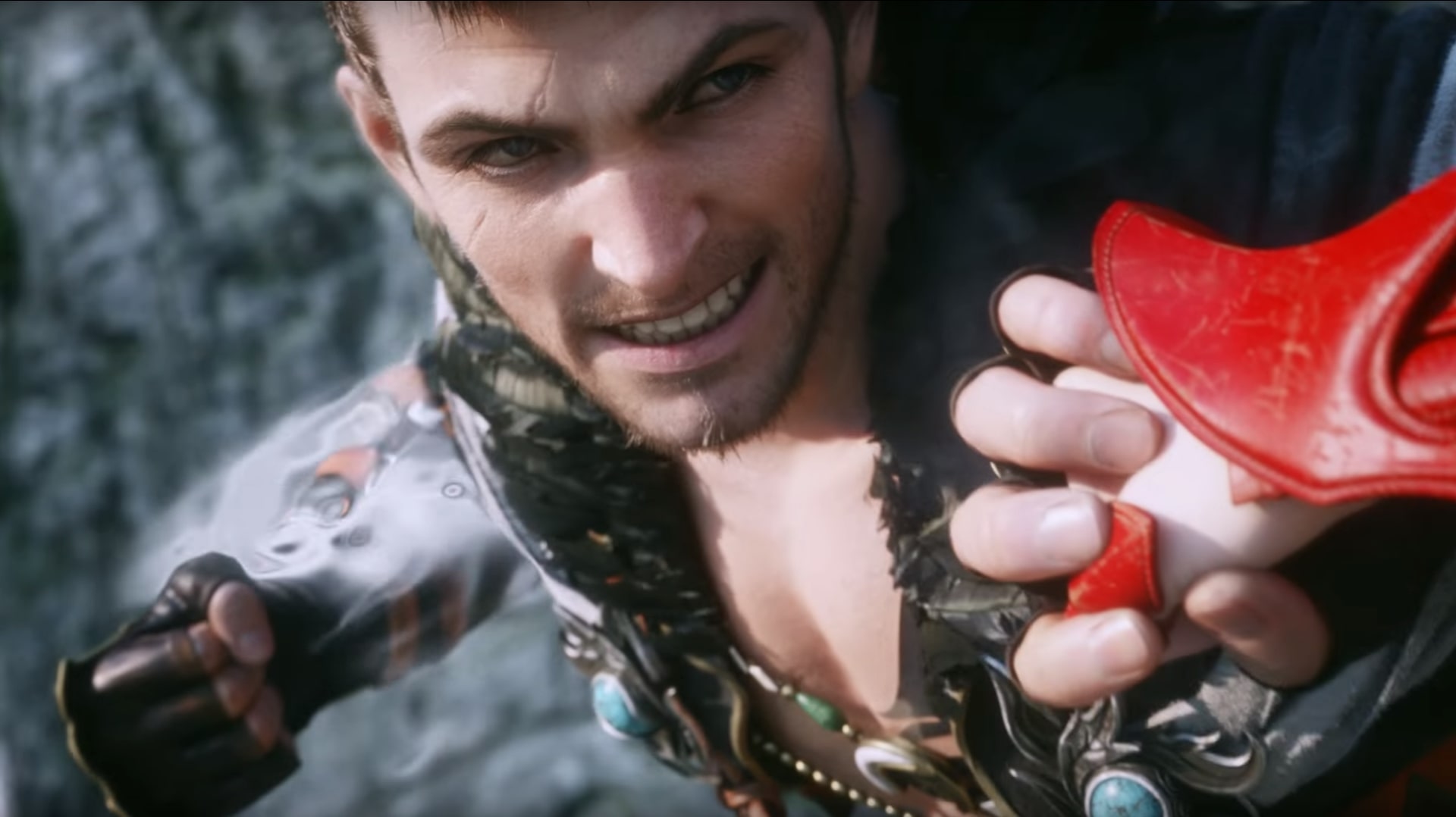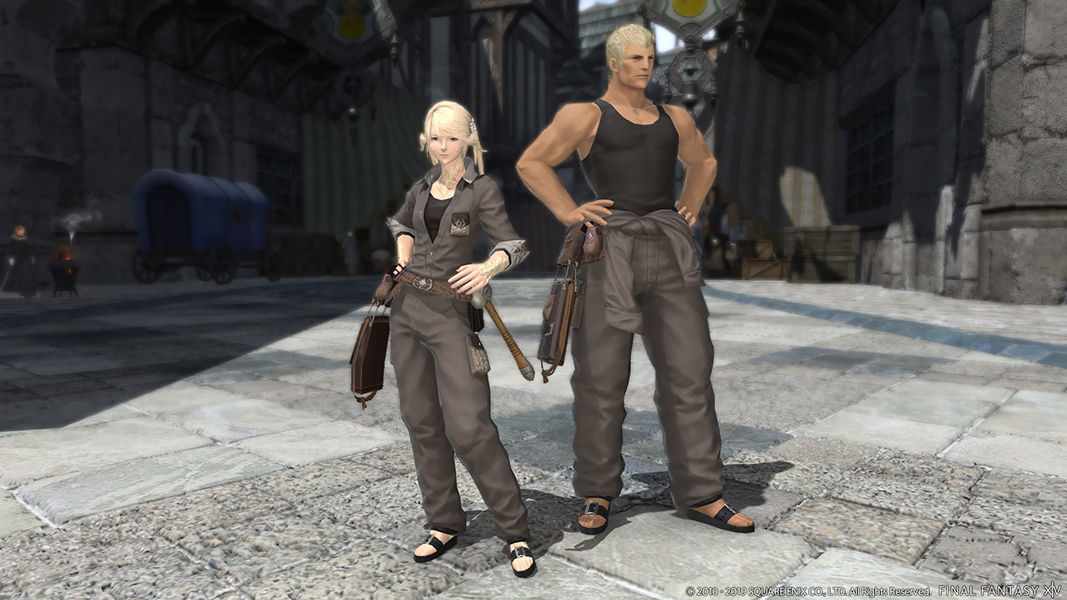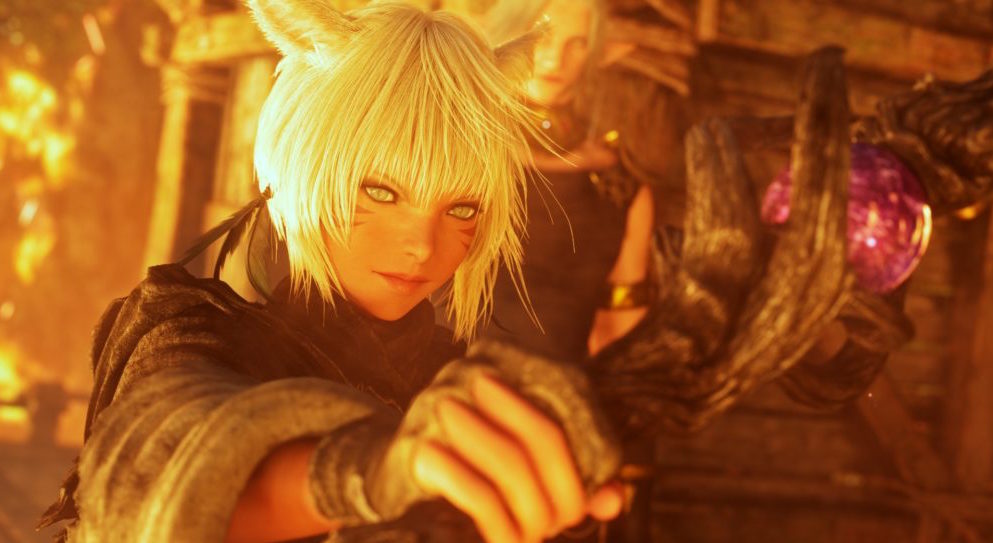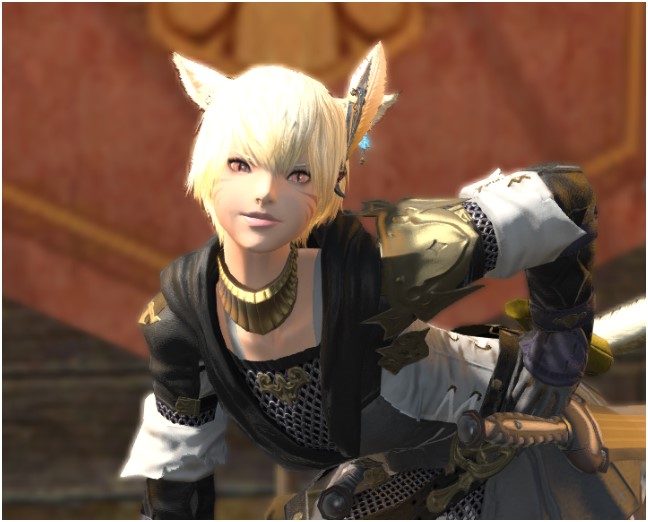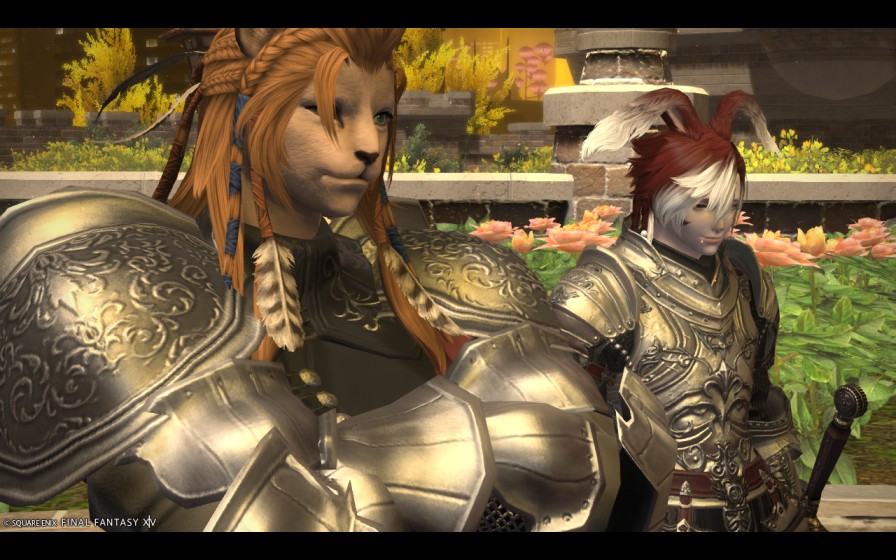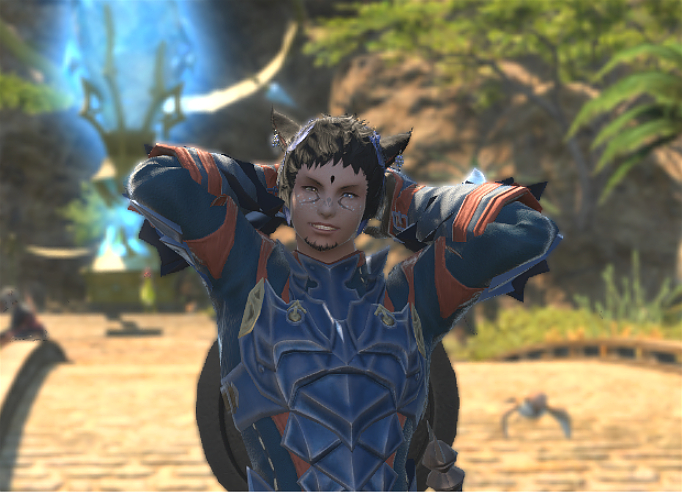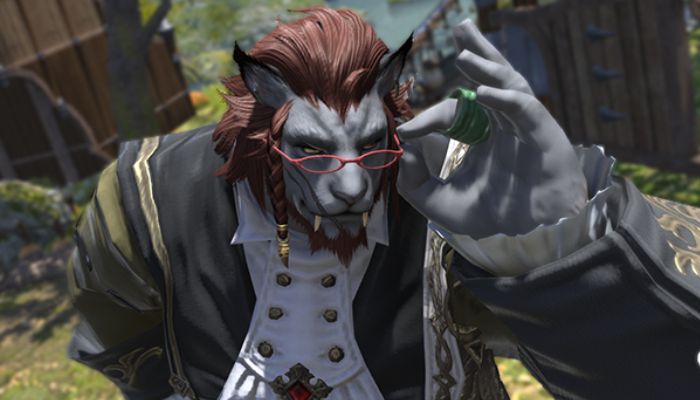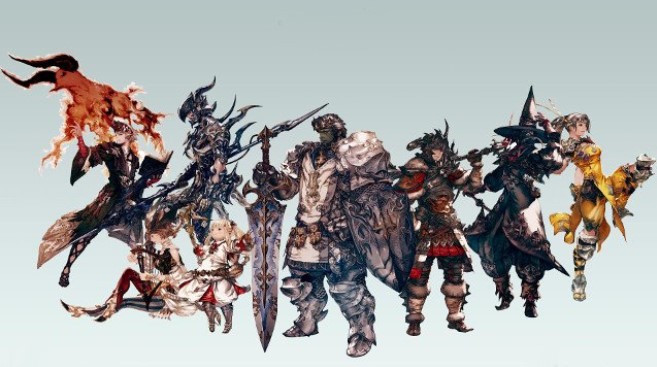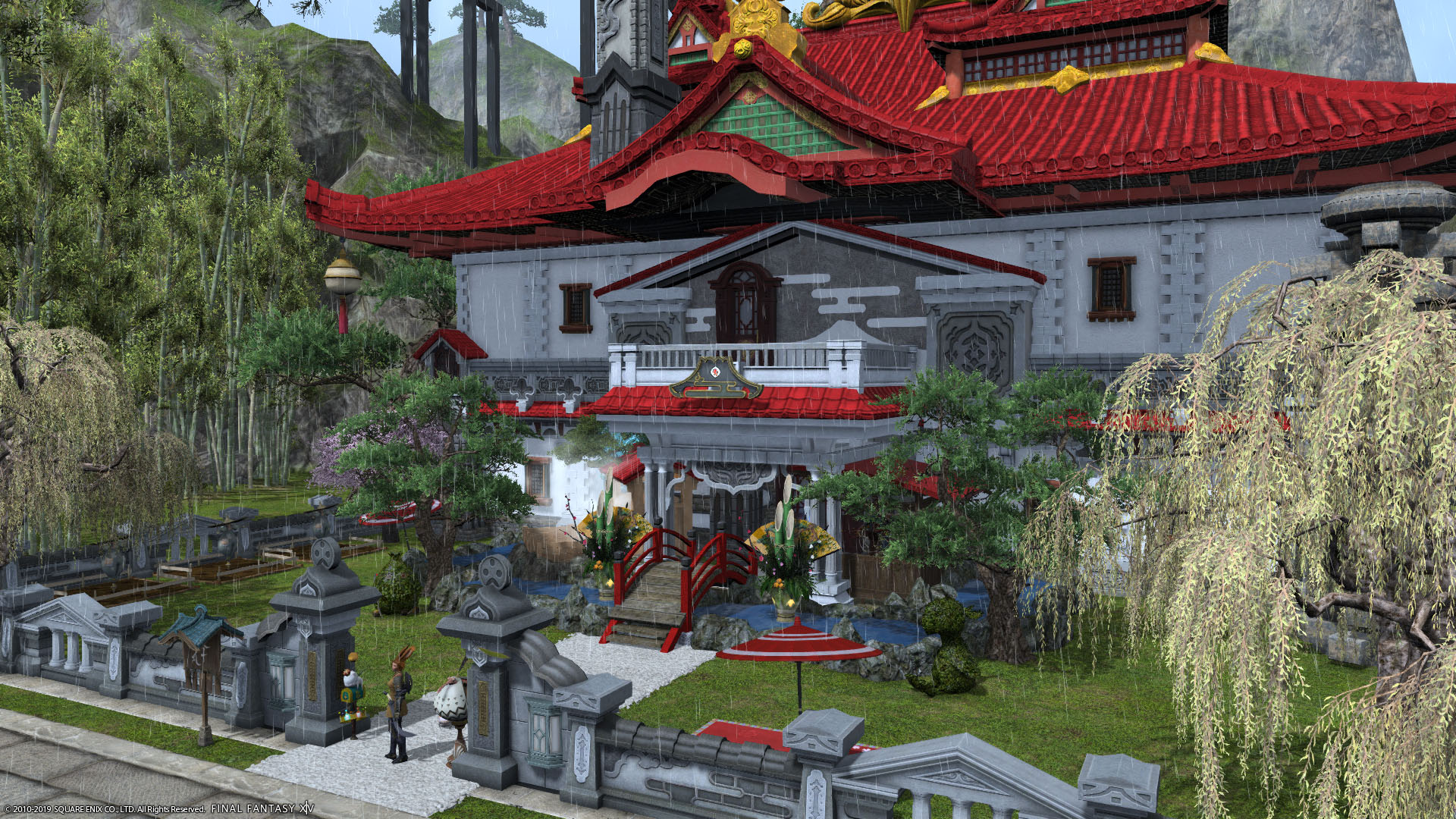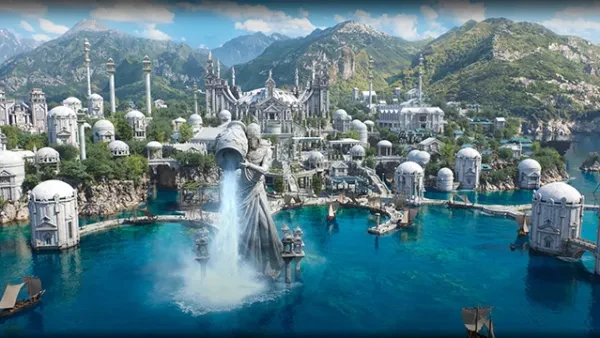
Getting started in any MMORPG is a bit daunting. However, this guide will help you find your way in Eorzea without spoiling anything and without getting bogged down in end-game or optional content that can be explored in other guides.
Getting Started
Character Creation
Classes and Specializations
Traversing the Territory
Questing through the MSQ
Dungeons, and Trials, and Raids, Oh My!
Socializing in Eorzea
Grand Companies vs Free Companies
The FFXIV Community “Rules”
Glossary of Eorzea
Getting Started

In order to enjoy Final Fantasy XIV, you must first actually get the game. There is a free trial version available here that includes the base game, A Realm Reborn, and the first expansion, Heavensward. The free trial has no time limit but does cap you at level 60 and does not allow you to join a player-run guild (Free Company), chat, trade, send mail, hire retainers, or hold more than 300,000 gil, among other restrictions detailed on the trial information site.
However, you can level all 14 available classes to level 60, do all of the content through Heavensward, and then convert your account to a full account as soon as you are ready to subscribe. Once you get a subscription, all of the restrictions are lifted!
Additionally, if you wish to progress beyond Heavensward, you only need to purchase Endwalker, as it will come with both Stormblood and Shadowbringers! That’s three expansions for the price of just one!
Character Creation

If you are starting on the free trial mentioned above, then only the races released at launch will be available to you at creation. These are the Hyur, the Elezen, the Lalafell, the Roegadyn, and the Miqo’te. Each race contains two different clans that offer different appearances. The differences are cosmetic only. Your race, clan, and gender do not confer any different stats!
For the Hyur (humans), there are the Midlanders and the Highlanders. Midlanders are fairly average in height and build and tend to have a lighter skin tone (though that is not a hard and fast rule). Highlanders are much taller, much more heavily muscled, and tend to have a ruddier complexion.
For the Elezen (elves), there are the Wildwood, who favor the forests and law and order, and then there are the Duskwight, who favor cooler, quieter underground haunts and tend to be loners.
Among the Lalafell (dwarves), you can find the Plainsfolk and the Dunesfolk. While both are known for their savvy business dealings, the Dunesfolk make their homes in the sandy reaches of Thanalan and build the great civilization of Belah'dia, which flourishes today in Ul’dah. The Plainsfolk took to the seas and are a quiet part of the coalition that rules Limsa Lominsa.
The Roegadyn descend through two different lineages: the Hellsguard, who migrated to Eorzea long before the Sea Wolves. The Hellsguard tend to favor warmer, desert climes and have names that reflect their homeland, such as “Blue River” or “Quiet Stones.” The Sea Wolves were pirates who made their fame on the high seas before settling down to help found and then govern Limsa Lominsa. One of their own currently acts as admiral of that naval city-state.
And last but certainly not least, the Miqo’te are also divided into two groups: the Seekers of the Sun and the Keepers of the Moon. The Seekers are diurnal hunters who band together in tribes led by a system of patriarchs. The more nocturnal Keepers, on the other hand, are matriarchal by nature,even though, like their Seeker cousins, women outnumber men by a significant margin.
Once you have selected your race, clan, and gender, you can further customize your character’s appearance by picking from a large palette of hair and eye colors, hair styles, racial-specific features (such as ear length for the Elezen or tail length for the Miqo’te), tattoos, face painting styles and colors, and even the kind of voice your character has! The final step is to select your class and then enter the lands of Eorzea!
Classes and Specializations

While there are many classes available within the world of Final Fantasy XIV, when creating a new character, there are only a comparative handful that can be selected. Each class has one specialization that it can fulfill, and you can unlock other classes within your starting city after completing your first level 10 class quest. Other classes can be unlocked after you complete the Envoy quest. Classes that were released as part of the expansions can only be unlocked once your character completes the requirements for them.
Unlock quests have blue backgrounds and a plus sign in the lower right quadrant. These indicate classes, dungeons, raids, or zones that can be unlocked by completing that quest.
Combat classes are divided into two groups: Disciples of War, which are classes that focus on dealing physical damage, and Disciples of Mind, which are classes that focus on dealing magical damage or healing. Non-combat classes are also divided into two groups: Disciples of the Land for classes that can gather items, and Disciples of the Hand for classes that can make things.
A single character can unlock every single class available and level them all to max level. There is no need to roll additional characters in order to access other classes.
The classes available at creation are:
Disciples of War
Marauders begin their journey in Limsa Lominsa.
Gladiator: This class wields a one-handed sword and a shield and specializes in tanking. At level 30, the class converts to the Paladin class and gains additional abilities. This is a good class to play if you enjoy tanking and prefer to mix magic into physical combat. Be aware, however, that like all tanks, Gladiators take time to whittle down the health of their enemies.
Gladiators enter Eorzea in Ul’dah.
Lancer: This class wields a long lance and favors attacks that allow for a lot of jumping high in the air, skewering enemies, and weaving their attacks into a series of combos for maximum damage, making them a DPS specialty class. At level 30, the class converts to the Dragoon class and gains additional abilities. This is a good class to play if you enjoy dishing out a lot of physical damage from close range. However, Lancers who challenge too many enemies at once often find themselves in serious danger.
Lancers arrive at Gridania at the start of their journey.
Pugilist: If you prefer to pummel your opponent with your bare hands (or with brass knuckles) and then kick them to add insult to injury, then this is the class for you! At level 30, pugilists become monks and gain additional DPS-speciality abilities. This is a good class to play if you enjoy weaving attacks into deadly combos, making use of positioning, and fighting in close-quarters combat. However, pugilists who bring too many brawlers down on themselves soon find themselves cruising for a bruising.
Pugilists enter the fray in Ul’dah.
Archer: If close-quarters combat is not your scene but you still prefer the physical over the magical, then archery is right up your alley. At level 30, Archers become bards and gain additional damage-dealing combat abilities as well as some unique instrumental performance abilities that help to make their little corner of Eorzea a more musical place. This is a good class to play if you enjoy weaving a pattern of ranged attacks into deadly combos, providing buffs to your allies, and keeping your distance from your target. However, archers who try to feather too many foes at once will find themselves forced to quit the field with alacrity!
Archers begin their hunt in Gridania.
Disciples of Mind
Arcanists begin their studies in Limsa Lominsa.
Conjurer: If you are all about nature and healing, then conjury is your craft! At level 30, conjurers can join the ranks of the White Mages and become some of the most powerful healers in the game. With their myriad healing abilities and spells, as well as their ability to deal a bit of damage on the side, conjurers are very popular when it comes to finding people to help keep a group going through a dungeon or raid.
Conjurers congregate over in Gridania.
Thamaturge: If your personal philosophy is that “there is no problem that can’t be solved with the proper application of high explosives,” then the thamaturgical guild would like to have a word with you. Specializing in wielding destructive magic to set their enemies alight, thamaturges are one of the strongest magical damage-dealing classes out there. At level 30, the class converts to Black Mage and gains additional damage-dealing abilities. Just be advised that, like Summoners, Black Mages are a bit of a glass cannon.
Thamaturges take up their robes in Ul’dah.
Once you complete your initial level 10 class quest, your class leader will permit you to join any other guild you can access. This means that, at class level 10, you can visit any trainer in your starting city to learn any other combat or non-combat job. These are:
Ul’dah: DoW/DoM – Gladiator, Thamaturge, Pugilist | DoL/DoH – Miner, Weaver, Goldsmith, Alchemist
Limsa Lominsa: DoW/DoM – Marauder, Arcanist, Rogue* | DoL/DoH – Fisherman, Culinarian, Armorsmith, Blacksmith
Gridania – DoW/DoM – Archer, Lancer, Conjurer | DoL/DoH – Botanist, Leatherworker, Carpenter
Classes such as Astrologian or Gunbreaker that were added in later expansions cannot be accessed until much later in the game.
*Rogue is available as soon as your character can reach Limsa Lominsa, but may not be selected during the creation process.
Traversing the Territory

Once you have completed your initial quest and gained access to the world of your starter city and the immediately adjacent zones, you’ll want to start exploring a bit. Your second quest will send you to attune to your city’s major aetheryte—a giant floating crystal that gives you the ability to learn the spell “Return"—and to head over to the markets and to your class trainer. Along the way, you may notice smaller aetherytes. These are called “Aethernet shards,” and attuning to them can make finding your way in a big city fast and easy!
Once you venture outside of the city, check your map to find the aetherytes for that zone. Attuning to them will allow you to teleport directly to that aetheryte. This can make traveling from one zone to another fast and easy.
Be careful when exploring, however. At low levels, hostile monsters will sense you and make short work of you. Additionally, some zones and cities are not accessible at all until you reach certain points in the Main Story Quest (MSQ).
Questing through the MSQ

As you begin your first steps into the lands of Eorzea, it would be a good idea to stick to the Main Story Quest with your first class. The Main Story Quest, or "MSQ,” is easily depicted by quest-givers having an icon that looks like a comet for the quest icon. Other icons are covered in the shorthand section at the end of this article, but the most common ones are:
A plain, tan circle with an exclamation point – Side story quest.
A blue circle with a plus sign at the bottom right quadrant – Unlock quest.
A tan circle with a lighter-colored circle – Repeatable quest.
A red circle – Locked quest (either you must be a different class, a higher level, or have completed a certain unlock quest first)
The narrative of the MSQ will guide you through your starting city and into the wider world, connecting you with the leaders and friends who will aid you in becoming the savior you were born to be. The MSQ cannot be skipped or ignored, and you cannot access dungeons, raids, or trials without reaching a certain point in the MSQ for each one. So, instead of thinking that you can just grind out class levels and jump straight into the endgame as you can in certain other games, stick with the MSQ. It will level you far faster than grinding and will show you where to go to unlock each and every dungeon and trial.
Dungeons, and Trials, and Raids, Oh My!

Speaking of dungeons, trials, and raids, it would be a good idea to know what they are, how they differ, and what to do.
A dungeon is any four-man instanced area. There are, broadly speaking, two main types of dungeons: story dungeons that are unlocked as part of the MSQ and optional dungeons that are unlocked by unlocking quests that are not part of the MSQ. When run either at level or using level syncing, a dungeon requires a party of four people: a tank, a healer, and two damage dealers.
As of the release of Endwalker, story dungeons through the entirety of A Realm Reborn can now be run with a Duty Support system of NPCs who will fill in the roles that you, the player, are not playing. The AI on these NPCs is actually quite good, and they will do a good job of healing you, tanking enemies, and dealing damage without you having to issue any commands. The Duty Support NPCs (also called "Trusts” after the Shadowbringers/Endwalker system it is modeled on) will follow you through a dungeon, respond to mob and boss mechanics, and allow you to complete all required dungeons without needing to wait in a lengthy queue or deal with other players if you are not feeling confident in your abilities just yet.
A trial is an eight-man dungeon that consists of a single boss in an arena. These dungeons are unlocked through the MSQ. Trials cannot be run with the Duty Support system. Instead, you must use the Duty Finder or Party Finder feature to join a team of seven other players to complete the trial. Trials have a duration of 90 minutes before the group must exit and re-enter the dungeon. To complete a trial at level or using level syncing, the party must consist of two tanks, two healers, and four damage dealers.
Once a trial has been completed and a certain point in the MSQ has been reached, you can unlock an "extreme" version of that trial for a more challenging, higher-level encounter with the same boss.
A raid is an eight-man dungeon that consists of a single boss in an arena but is part of a larger dungeon series. Raids are usually released with four raids in a single tier. Much like trials, raids require a team of two tanks, two healers, and four damage dealers and have a duration of 120 minutes to complete. Raids are unlocked outside of the MSQ by completing specific unlock quest chains to access them.
Once you have completed all four raids in a given tier, you can complete a single unlock quest to access the savage version of those raids for a more challenging, higher-level encounter with the same bosses.
There are also alliance raids that are larger, longer, and require three teams of eight players to complete. These are unlocked outside of the MSQ through specific unlock quests. Alliance raids are generally released in trios throughout an expansion, with one dungeon being released at a time. Unlike raids and trials, alliance raid teams consist of one tank, two healers, and five damage dealers. Currently, most of these dungeons are optional, with only the Crystal Tower series being required to progress through the MSQ.
Socializing in Eorzea

If you are on the free trial version, your ability to socialize in Eorzea is severely hampered by the trial account restrictions. However, if you have seen the light of the Mothercrystal and gotten a subscription, there are numerous ways in which you can get to know your fellow players in Eorzea, even without dedicated chat channels!
You will find many fun and interesting conversations—as well as the usual recruitment ads for various Free Companies – in /shout chat. Feel free to join in as long as you are not saying anything harassing or mean.
You can also join up with various Hunt Trains as they make their way through the different zones looking for specific monsters to kill. They usually announce themselves with a shout when they are targeting a mob in that zone, so feel free to send a tell or shout back to join up and get to know the people in that Hunt Train.
Talking to people in your party when you queue up for roulettes or even a required dungeon is another good way to socialize. I joined an FC because of some people I met doing roulettes one morning who enjoyed my somewhat quirky sense of humor.
If you're looking for a large group of players who share your interests, you can also go to the Lodestone and look for free companies on your server that are hiring. There are also Cross-World Linkshells advertised there where you can get to know people who want to chat about a specific topic, such as great fantasy books!
Grand Companies vs Free Companies

One area of confusion for many new players is the issue of Grand Companies (GCs) and Free Companies (FCs). Since both are “companies” that you can “join,” there is some need to clarify how they differ.
A Grand Company is an organization that is part of the storyline, is run by NPCs, and is part of the Eorzean cultural backdrop. As part of the MSQ, you must join one of the three Grand Companies – the Maelstrom (allied with Limsa Lominsa), the Immortal Flames (allied with Ul’dah), or the Twin Adders (allied with Gridania). Through your Grand Company, you can earn the right to purchase player housing in a housing district, purchase items and equipment that are Grand Company exclusives, and hire retainers.
A Free Company is a player-created organization that is not part of the storyline. You do not ever have to join a Free Company. However, Free Companies are one of the major ways in which people socialize and get to know others within the game. If you cannot find a Free Company you would like to join, you can always speak to the OIC Administrator in one of the three capitol cities to purchase a petition to start your own Free Company.
A Quick Guide to FFXIV “Rules”
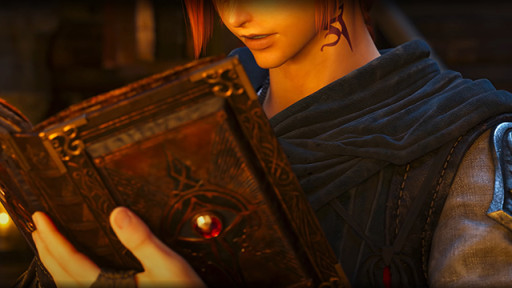
Another thing that perplexes many new FFXIV players is the community's unwritten rules. So, to help you come to grips with some of these and to let you help us keep FFXIV as the best gaming community ever, here are some of the basics of how to get along in Eorzea.
- Be patient and be kind – If someone is making a lot of mistakes, instead of lashing out at them, ask them if they would like some advice or some pointers. The tank who is taking things one pull at a time instead of going wall to wall might be tanking for the very first time. If you are an old hand at tanking, consider offering the benefit of your experience to the new tank.
- If you are the healer or the DPS and you start outrunning the tank to pull, have a strategy in mind to keep yourself alive.
- If the tank forgets to put on their tank stance at the start of the dungeon, remind them. Sometimes it is easy to forget that the tank stance gets turned off when level syncing.
- The healer sets the pace – Know what each healing class is good at when running a dungeon and if a particular healer asks you to take it slow, then take it slow. They may be new to healing, new to that class, or just having a bad day and not able to focus entirely on the dungeon. At any rate, the healer will always set the pace because if the party takes on more than the healer can heal through, it’s going to be a wipe.
- The two “best” healing classes at the moment are Sage and White Mage. These classes can easily handle big pulls. An Astrologian can also take big pulls but has a more difficult time healing on the run.
- Scholar healing is more about shielding and mitigating or preventing damage than healing through it. If you have a Scholar healing your group, try to keep the pulls smaller to give them more time to get the Faery Gauge filled so they can heal more easily.
- If you can’t be kind, be quiet – In FFXIV, if you go around trash talking other players – especially if they are new to the game or to that role – or if you are just generally unpleasant to be around due to constantly insulting and belittling players who fail to live up to your epic level of awesomeness at everything, you will soon find yourself unable to do much beyond run dungeons with the Duty Support/Trust.
If you have an issue with a player underperforming, try talking to them first. Trust me, word will get around if you start talking badly about them to your friends. If they refuse to do anything to improve, then just don’t group with them. - Pitch in and help out – If you join a static or an FC, be willing to pitch in and help out with the occasional project. If the FC or if an FC member needs some crafting done, offer to help with crafting or gathering the mats. Put things in the FC chest to help out other members. Be the kind of community member you would want to hang around.
Eorzean Glossary of Slang
Eorzea has more than its share of abbreviations, nicknames, terms, and running jokes. Here are some of the most common ones that can be (and sometimes are) mistaken for other things.
Games:
ARR – A Realm Reborn
HW – Heavensward
SB – Stormblood
ShB – Shadowbringers
EW – Endwalker
Combat Classes:
AST – Astrologian (not Atlantic Standard Time)
SCH – Scholar
SGE – Sage
WHM – White Mage
BLM – Black Mage (not a political movement)
RDM – Red Mage (not “random”)
BLU – Blue Mage
SMN – Summoner
WAR – Warrior
PLD – Paladin
GNB – Gunbreaker
DRK – Dark Knight
MCH – Machinist
DNC – Dancer (not an American political party)
BRD – Bard
MNK – Monk
DRG – Dragoon
NIN – Ninja
SAM – Samurai
RPR – Reaper
Party/Duty/Dungeon/Raids:
PF – Party Finder (accessible by clicking on “Duty → Party Finder”)
Roulettes/Rouls – A series of dungeons that you can run each day for rewards. Must be run with other players.
Trust – The Duty Support and Trust system of NPCs that will run story dungeons with a player
Coils – The Coils of Bahamut (an ARR raid)
UWU – Ultima Weapon Ultimate
UCOB – Unending Coil of Bahamut (Ultimate)
DSR – Dragonsong’s Reprise (Ultimate)
Castrum – Castrum Meridianum (a dungeon near the end of the MSQ for ARR)
Prae – Praetorium (another ARR end dungeon)
A#N or A#S – Any of the Alexander raids from HW. The # indicates which dungeon it is (A1N being the first dungeon of the first tier, normal mode. A9S would be the first dungeon of the third tier, savage mode).
O#N or O#S – The Omegascape raids from SB.
E#N or E#S – The Eden raids from ShB.
P#N or P#S – The Pandaemonium raids from EW.
5/6/7/8 – Refers to the Level 50/60/70/80 dungeon roulette wherein you will enter a random dungeon of one of those levels that you have unlocked.
Housing:
Emp – Empyreum, a housing district in Ishgard
LB – Lavender Beds, in the Shroud
Shiro – Shirogane, a housing district in Kugane
Crafting/Gathering
Omnicrafter – Someone who has all of the crafting jobs to the max level and has learned all of the expert recipes. They will almost always have all of the gathering jobs maxed as well.
ALC – Alchemist
ARM – Armorer
BSM – Blacksmith
CRP – Carpenter
CUL – Culinarian (not a swear word in French)
GSM – Goldsmith
LTW – Leatherworker
WVR – Weaver
BTN – Botanist
FSH – Fisher
MIN – Miner
Common terms/slang:
o/ – a wave
o7 – a salute
Sprout – a new player (usually has a green sprout icon by their name)
FC – Free Company
GC – Grand Company
Squad – the Squadron you can recruit when you reach a certain rank in your GC
Floortank – usually the DRG. Someone who spends most of the fight dead.
RP – Role playing
ERP – Erotic role playing
AO3 – Archive of our Own, a website where some fanfic writers post their FFXIV stories
VC – Voice Chat (usually Discord)

